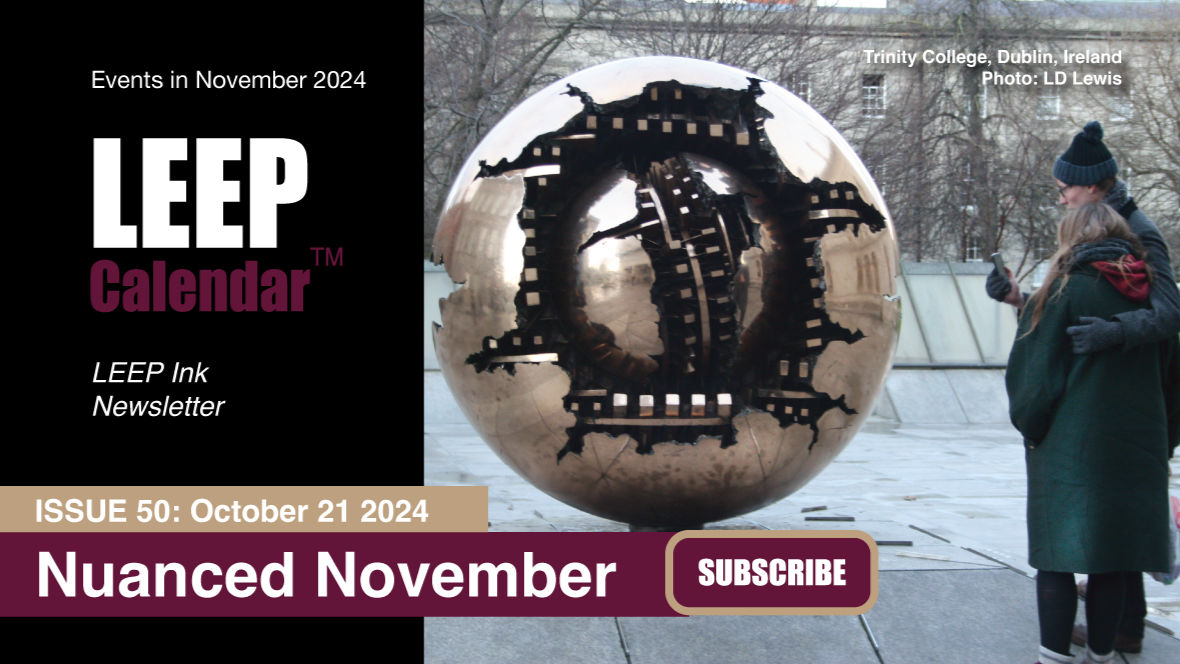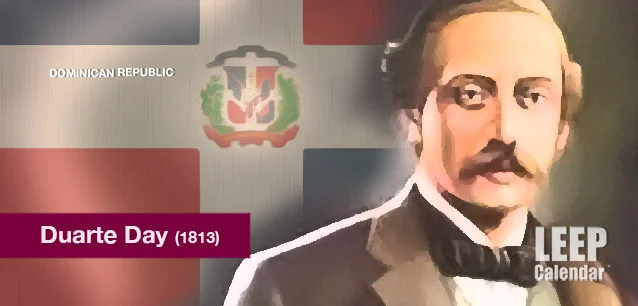 AD
AD
Today is: November 24
Scroll to explore events active on this date.
LEEP INK FEATURES

Nuanced November 2024
November is the start of the holiday season in many parts of the world. It is a time for family, football, food, shopping and decorating, particularly in the Christian and Jewish world, leading to Christmas and...

December's Gift
Events in December 2024. Well, we made it to December. December is the holiday season, particularly in Western nations, where Christianity and Judaism are the faiths most common in the nation's past. ...

August is Appropos
A toddler playing in the fountain at a park in Santa Fe, New Mexico—Photo LD Lewis. In August, we live through the Dog Days of Summer. It's hot and often humid, and those ...
About Juan Pablo Duarte Day
Mexico & Central America
Ends: Jan 26, 2024
DESCRIPTION:
Juan Pablo Duarte, born on January 26, 1813, in Santo Domingo, is a revered figure in Dominican history, often hailed as the father of Dominican independence. He was known for his fervent dedication to liberating his homeland from Haitian rule, which he achieved through establishing the Dominican Republic in 1844.
Duarte's early years were tumultuous in Hispaniola, an island shared by the modern-day Dominican Republic and Haiti. The eastern part of the island was under Haitian occupation following its unification by Haiti in 1822. This political climate profoundly influenced Duarte, who sought an education in Europe and thrived on the liberal and nationalist ideologies sweeping the continent.
Completing his education, he returned to Hispaniola in the 1830s and discovered a society yearning for autonomy. He became the driving force behind a secret society named La Trinitaria, established in 1838. La Trinitaria attracted like-minded young nationalists who aimed to overthrow the Haitian government and proclaim a sovereign Dominican state. Duarte's leadership and organizational skills were instrumental in unifying the factions opposing Haitian rule.
The movement faced numerous challenges, including internal dissent and the Haitian army. However, with dogged determination, the Trinitarians ultimately prevailed and declared the Dominican Republic independent on February 27, 1844. This historic event marked the culmination of Duarte's lifelong dream and efforts.
Despite his pivotal role in the country's independence, Duarte's life after 1844 was anything but easy. Political rivalries and turmoil led to his exile, and he spent many years abroad, primarily in Venezuela. A sense of disappointment and detachment from the political affairs of the Dominican Republic marked Duarte's later years.
Juan Pablo Duarte died on July 15, 1876, in Caracas, Venezuela. His legacy is celebrated in the Dominican Republic, where he is remembered as a national hero and the architect of the nation's independence annually on Duarte Day, a national holiday in the Dominican Republic.
VIDEOS
Currently, this event does not have supporting videos.
SUPPORTING DOCUMENTS
Currently, this event does not have supporting documents.
ADDITIONAL IMAGES
Currently, this event does not have supporting images.
Where would you like to go now?
 AD
AD


/footer-logo.svg)
